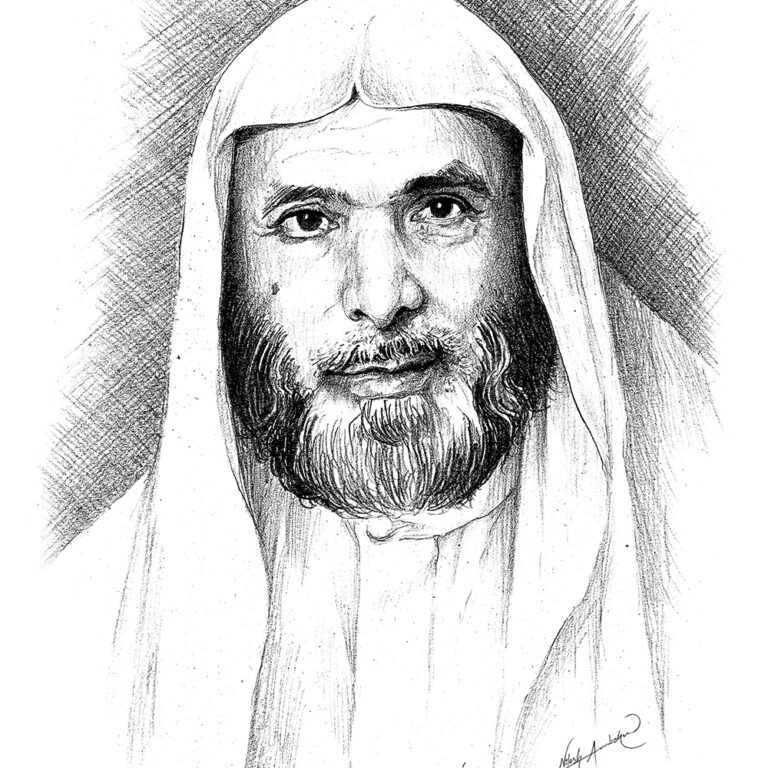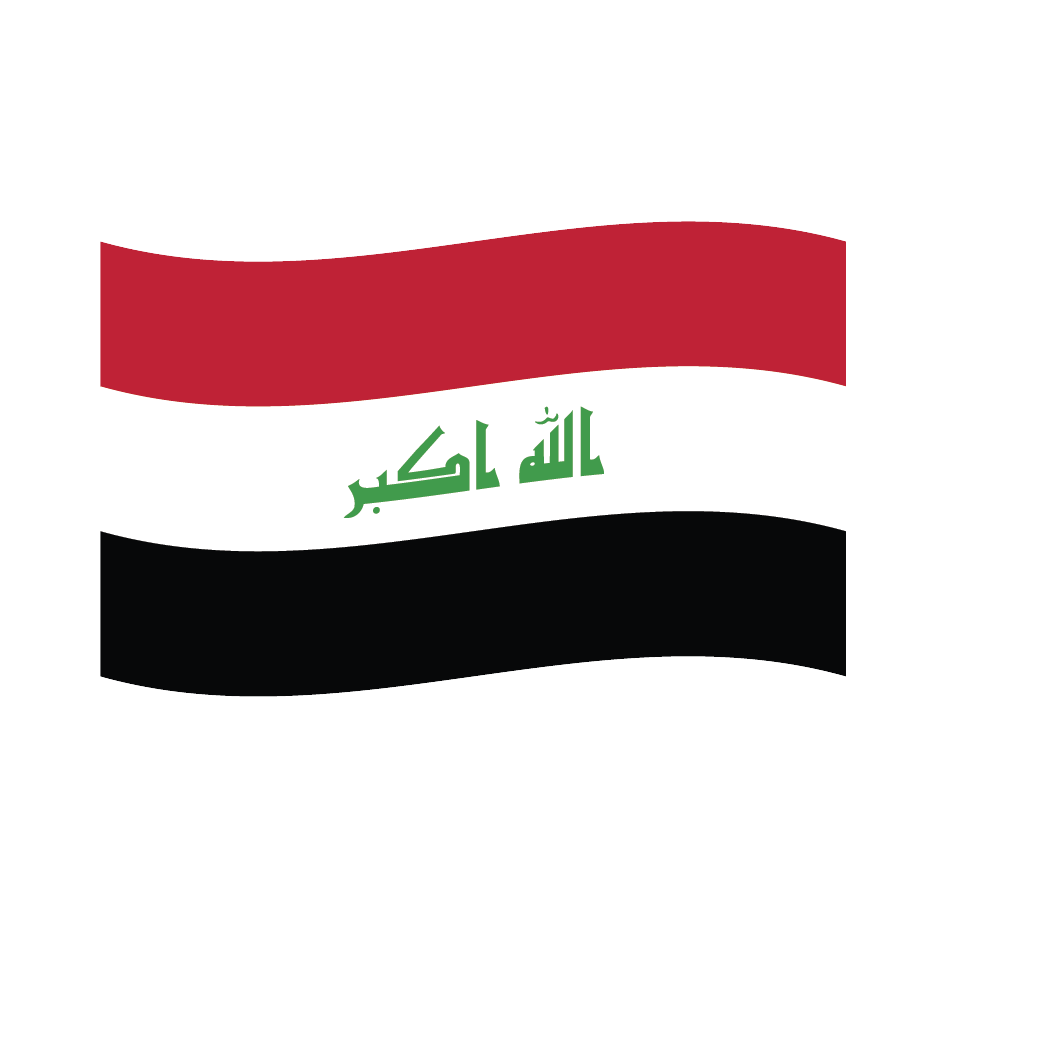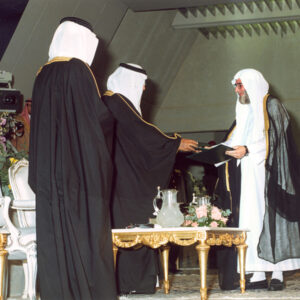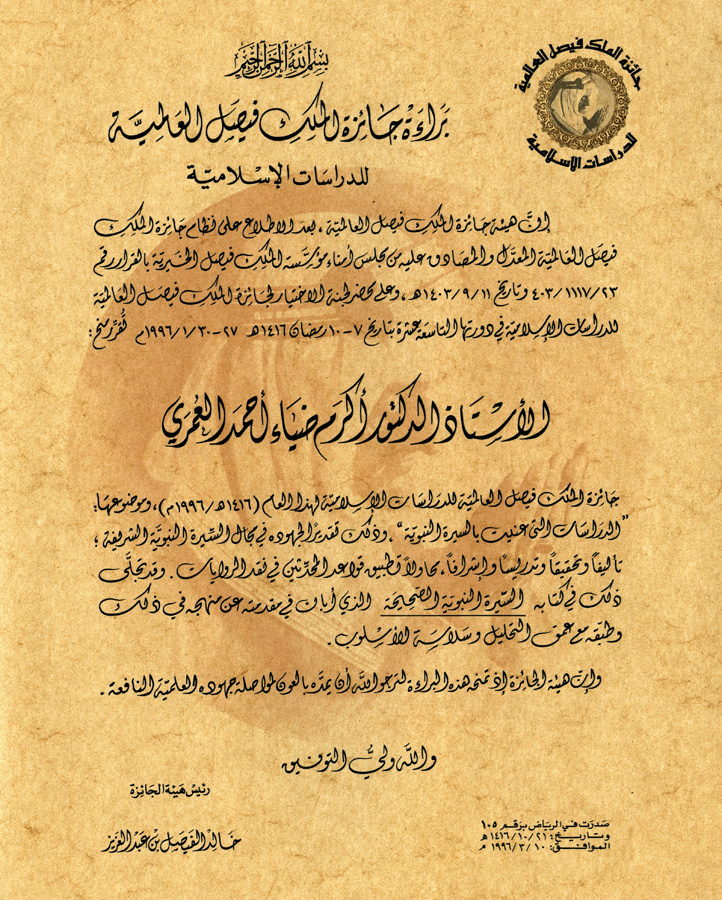

Professor Akram Dia’a Al-Umari
King Faisal Prize in Islamic Studies 1996 Laureate
Topic: "The Life of the Prophet Mohammad"
Religious awareness is an expression for the desire to build a balanced nation, characterized with love, mercy, and tolerance

Akram Al-Umari graduated from the College of Education in 1963 and obtained his M.A. at the College of Arts in Baghdad University in 1966, and a Ph.D. in Islamic History at Ain Shams University in Cairo in 1974. After teaching for a few years at Baghdad University, he was recruited by the Islamic University of Al-Madinah Al-Munawwarah, where he was a Professor of Islamic History at the Department of Islamic Studies and the Department of History from 1976 to 1995. During that period, he was the Chairman of the Department of Post-Graduate Studies and the Scientific Council of the University, a researcher at the Sunnah and Sirah (Life and Traditions of the Prophet Mohammad) Center, and a member of the Scientific Council of the King Fahd Complex for Printing the Qur’an. He is currently a professor at the College of Sharia in the University of Qatar.
Al-Umari is a prominent scholar of Islamic history and Sirah and author of more than 20 books and numerous articles in these fields. His books on the life and history of the Prophet Mohammad contain insightful analyses of the events that led to societal transformations during the early part of Islam. They describe the struggle of the Prophet and his closer companions to preserve their new identity in the face of immense challenges. The books also analyze Islamic ideals and concepts from religious and historic perspectives, and are important references for students and readers of the Prophet’s sirah. Other related Arabic texts by Al-Umari include those on Al-Maedinah society, the rightly-guided caliphs era, and the Islamic civilization.
Professor Al-Umari has authored several important books dealing with the history and values of Islam in general, and with the life and history of Prophet Muhammad and the Khaliphs, in particular. His works place him among leading contemporary scholars of Islamic history. One of his best known contributions in his two-volume book The Authoritative History of the Prophet Muhammad, which contains exhaustive analyses and interpretations of events in the Prophet’s life. This thoroughly documented manuscript, which has been translated into English and other languages serves as an important source of information for researchers.
This biography was written in the year the prize was awarded.
- He published many books including:
- Min Fiqh Al-Sirah Al-Nabawiyah (Dar Ibn Hazem), (2012).
- Al-Thaqafah Wa Al-Nahdhah (Dar Ibn Hazem), (2014).
- He received Sultan Hassan Bolkiah Prize in 2000 for his studies on the life of Prophet Mohammad.


